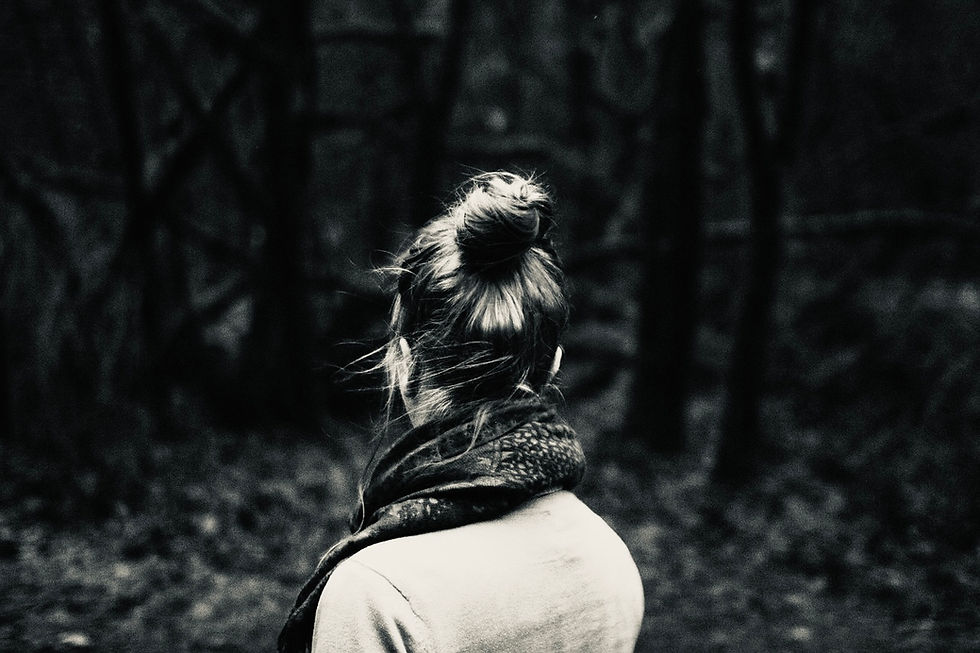Throwback Thursday: Travelers’ Sickness, by Kiyomi Appleton Gaines
- Fairy Tale Magazine

- Sep 5, 2024
- 4 min read

Editor’s Note: Today's Throwback Thursday story, from 2018, is Kiyomi Appleton Gaines' take on a nocturnal female spirit in Southeast Asian folklore known as a Krasue. She was inspired to write it during a trip to Thailand after her sister-in-law told ghost stories to entertain their group on the winding road after the sun went down.
In this dark modern folktale, it is best to remember to be a respectful and conscientious traveler, as there are those that watch...and wait....
Susannah wasn't herself anymore. She wanted blood, and the blood soup and the raw meat dishes she'd been satisfied with until recently would no longer sustain her. She had come to this place for a change. She needed a break, to get away. She thought she would reconnect with the rituals of her childhood, and make a sort of pilgrimage to the many temples in the area.
On her journey through the country to visit temples, old and new, she encountered others who were not on any pilgrimage. They were loud and self-involved, and disrespectful of the places and traditions, and they left things a mess. She took an extra breath and a moment to extend compassion toward them, but still she was angry.
A week in, her stomach ached. The pharmacist told her it was traveler's sickness, and gave her some tablets to take. She didn't improve though, and it seemed to spread from her stomach to the rest of her insides. Everything felt tight and confined, and sharp stabbing pains prickled down her sides. Then her neck began to hurt. The pain was sharp and went down either side of her spine, between her shoulder blades into the very root of her neck. She took her tablets and lay in her room, unable to turn her head without pain. Traveler's sickness, the stress of everything was just catching up to her. She would take her tablets and rest.
One night, she tossed and twisted her head, restless with the pain and tightness in her neck, seeking some relief, until she felt a pop. She felt light then, and stretched and cool and clean. She felt the chill of the night air on her brow and neck, and over her lungs and stomach and intestines. She opened her eyes and saw her room below her, her own body, headless and lifeless on the bed. She felt a rush of dizziness and plummeted back down. When she woke again her body was reassembled. The pain, still lingering in her neck and back, was not so severe. The next night she felt better, and she knew what would set her right was blood soup. She was right.
She knew what was happening now, she had heard the old stories from her grandparents. When the soup and the raw dishes no longer served, she left her body and flew out over farmland to find a stray chicken, then a cat or a dog. They were easier to catch than wild animals, less wary of her still-human smell, unwary of her unnatural state. The wild animals knew the strange light of her eyes, and hid themselves well.
She felt better, stronger, and though this was not the transformation she had sought, she began to feel that she, too, had purpose and place in the order of things; that this role could also be of service.
She took to wearing scarves to cover the line that separated her neck from body. She took note of those travelers in scant tops and fashionably tattered clothing, the ones who hadn't bathed for days by choice, who showed too much skin in the temples, careless because it wasn't their holy place, and besides, it was hot. She took note of the ones who brought the street dogs into places with them, thinking it was funny that they had adopted pets for the few days or weeks of their holiday. She noted those who didn't make way for the elders, who played loud and crass music at the holy places, who joked and laughed while the monks were chanting prayers. She noted the ones who were drunk at holy festivals and tossed their cigarette butts and crushed beer cans into the ritual fires. She noted them. She followed them. Everyone had a chance to make a better choice. She watched to see whether they would. But those who didn't, she would seek out.
"I noticed you," she would say, "at the temple. I'm called krasue."
They never asked what that meant, were never curious to know more. Instead they wanted to impress her, and themselves, with where they were going and where they had been, with their own thoughts and opinions, and what it all meant about them that they were here in this place. She would smile, it was all the encouragement they needed. And they would talk and drink and talk, and then stumble to their rooms. And she would lay her body someplace near, someplace safe, and follow behind the travelers to make her feasting and her offering. Hers was not the path of nonviolence, but rather of the tiger and the wolf.
"You're a corruption," some might say, "an abomination."
But, no, she thought, she had her place, too. She, also, was a part of the natural order of things. Travelers' sickness. It came to everyone in their time. They could make a different choice. Or she would come upon them.
She was an inevitability.
Kiyomi Appleton Gaines writes stories and articles inspired by folklore and fairy tales.
Find more of her writing at A Work of Heart
and follow her on X @ThatKiyomi



